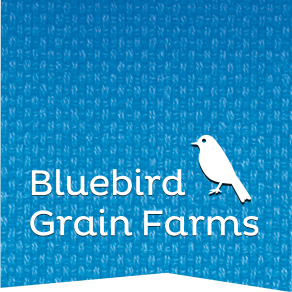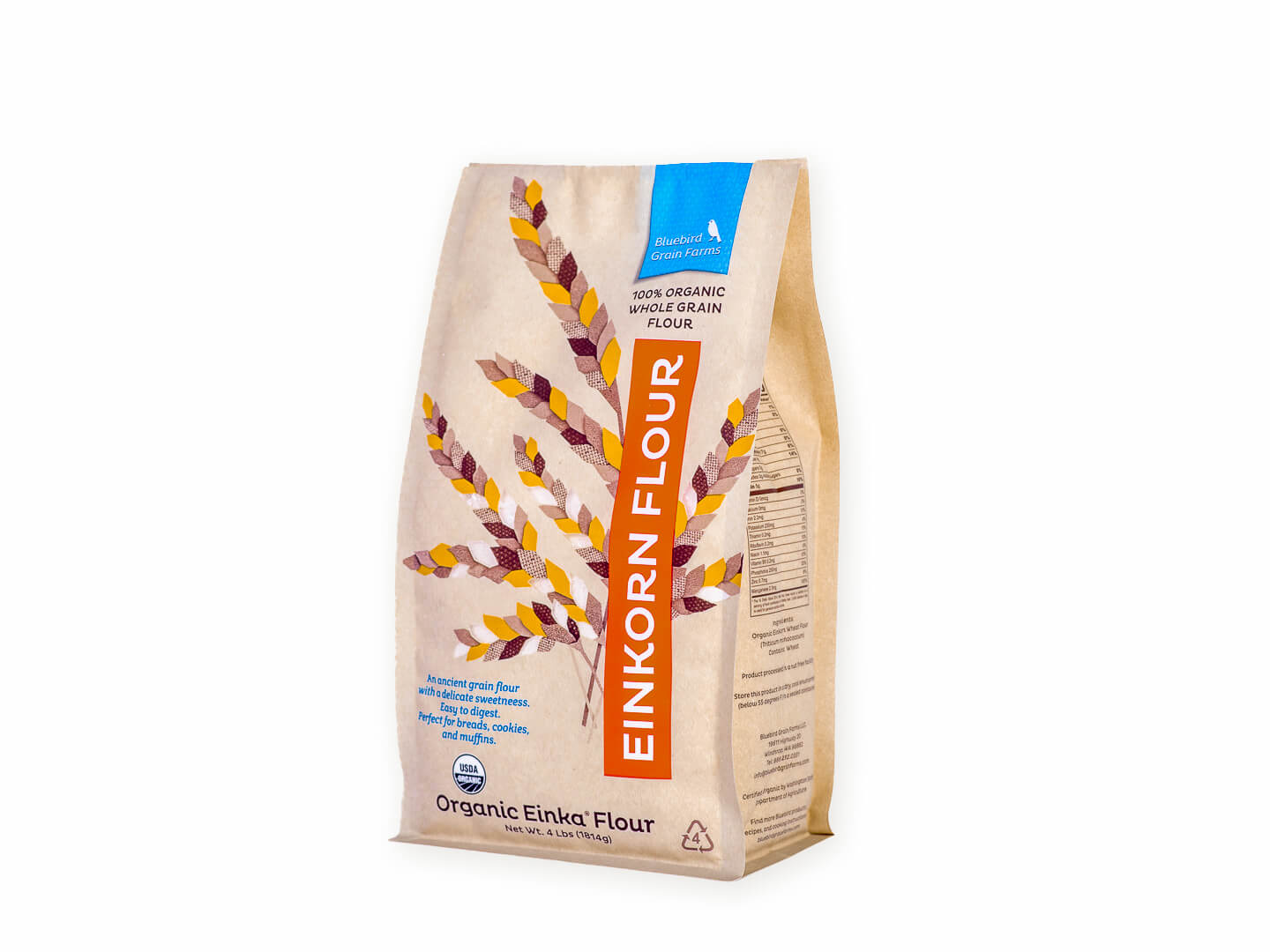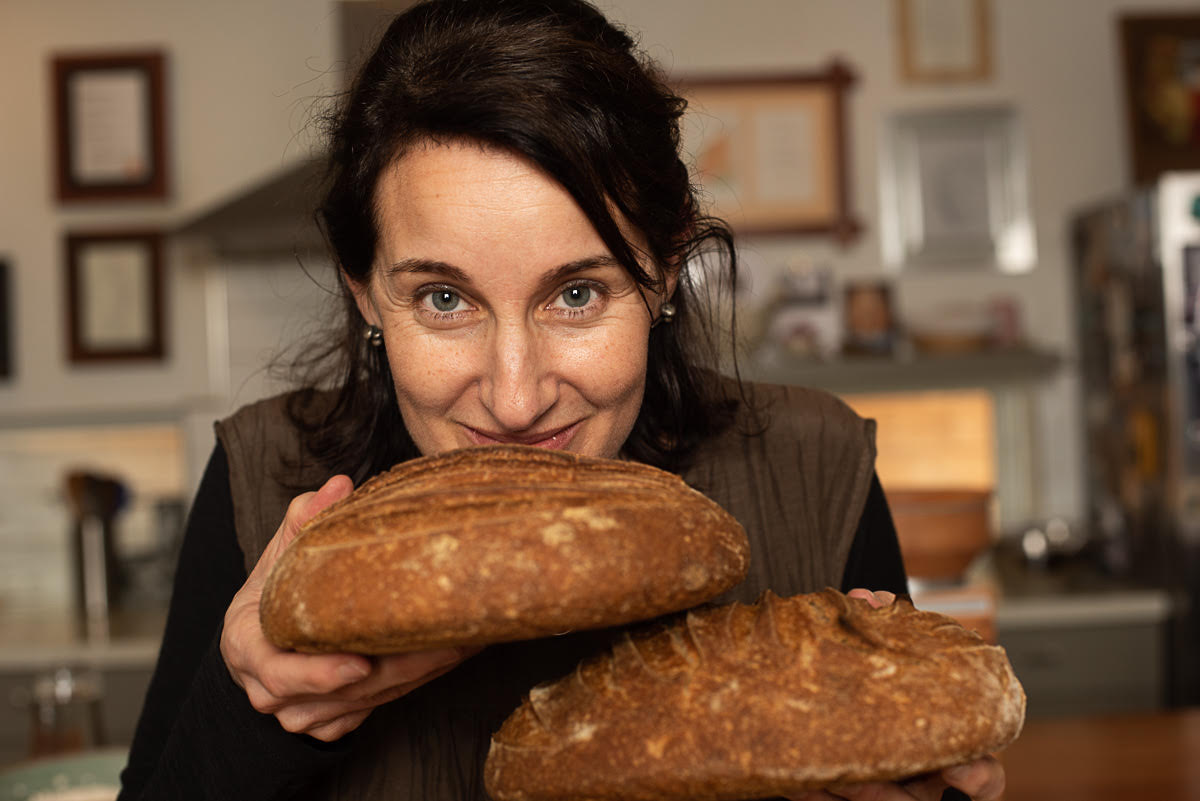
by Bluebird Grain Farms staff writer Ashley Lodato
featured image by Shawn Linehan | photos courtesy of Adrian Hale
Adrian Hale‘s story of baking starts with her child (who uses nonbinary pronouns). “When they were three,” Hale says, “they had a stomach ache that lasted a year. Every time they ate, their stomach hurt.” Hale took her child to doctors, but no one could ever find anything identifiably wrong. However, a natural medicine practitioner suggested that they were probably allergic to wheat. Hale removed wheat from her child’s diet; they felt better.
This solution of elimination didn’t sit well with Hale, however. “I come from a Jewish family. My grandmother survived the concentration camps,” she says. “My grandmother always said that bread saved her during the war and that she would never be without it again.”
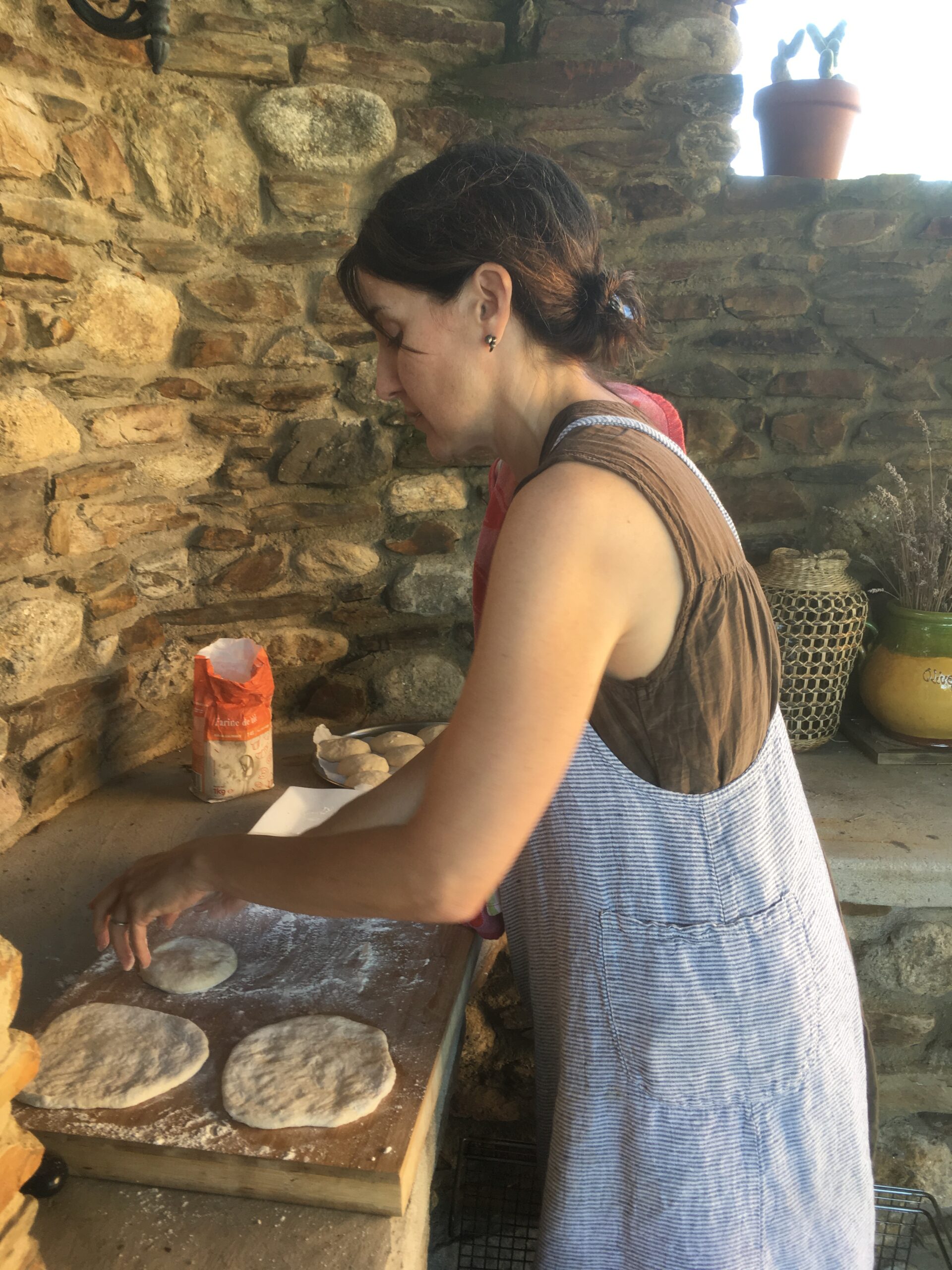 “We say a special prayer over bread,” Hale continues. “I didn’t want my family table to not have bread on it.”
“We say a special prayer over bread,” Hale continues. “I didn’t want my family table to not have bread on it.”
It was the beginning of the gluten-free craze and Hale was a food writer. So she began researching why wheat seemed to be making so many people sick. Around 2010 she ran across an article about how some people who don’t do well with conventional bread can do ok with bread made through a long, slow process of fermentation.
“I got a sourdough starter from a friend and I started making whole grain sourdough bread,” Hale says. “I went down a rabbit hole of bread. I drilled down on milling. I was committed to making the best bread for my family that I could possibly bake.”
It was a hard sell at first. “My kid always wanted white bread,” Hale says. “My husband grew up in the south; he wasn’t raised on wheat bread.” But as her family explored the flavors of whole grains, they fell in love with Bluebird Grain Farms’ Organic Einkorn Flour–and they never looked back.
Finally, bread was back in Hale’s family’s diet. Her child called it “mama bread.”
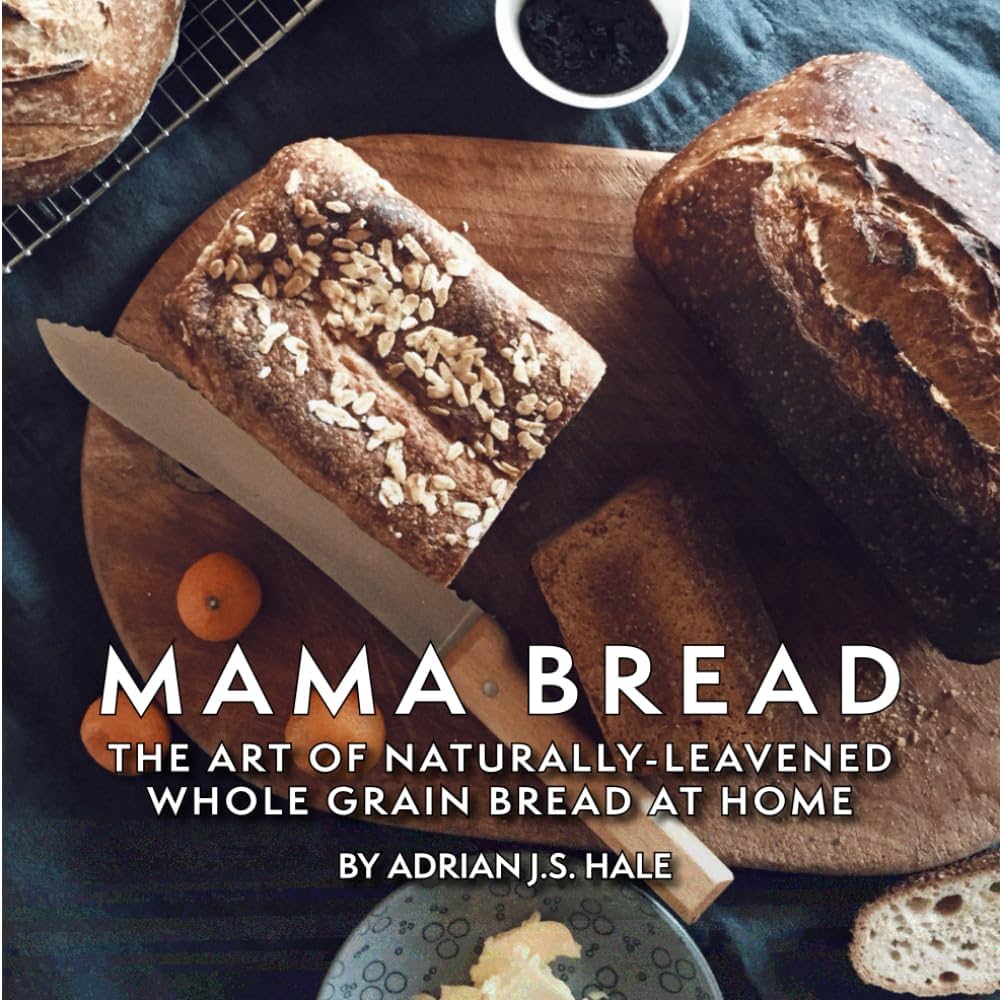 “Mama Bread” is now more than just the morning toast–it’s the title of the bread book Hale published in 2023. “Mama Bread: the Art of Naturally-Leavened Whole Grain Bread at Home” features “beloved recipes” Hale developed over many years of baking bread and teaching others.
“Mama Bread” is now more than just the morning toast–it’s the title of the bread book Hale published in 2023. “Mama Bread: the Art of Naturally-Leavened Whole Grain Bread at Home” features “beloved recipes” Hale developed over many years of baking bread and teaching others.
It was a book born from a bit of necessity. As a teacher, Hale wanted a baking book that covered both sourdough and whole grains. She also wanted to convey the freedom of experimentation that influenced her own research into baking with wheat. “I like telling people, ‘if you really love your white bread so much, you can still use 90% white flour and add 10% whole wheat from a local farm,'” she says. “It will taste that much better and it will help with your gut.”
Before the pandemic Hale spent a lot of time writing about the milling process, largely to further her own understanding. “Now there’s much more access to freshly-milled grains,” she says. “There are more people paying attention.”
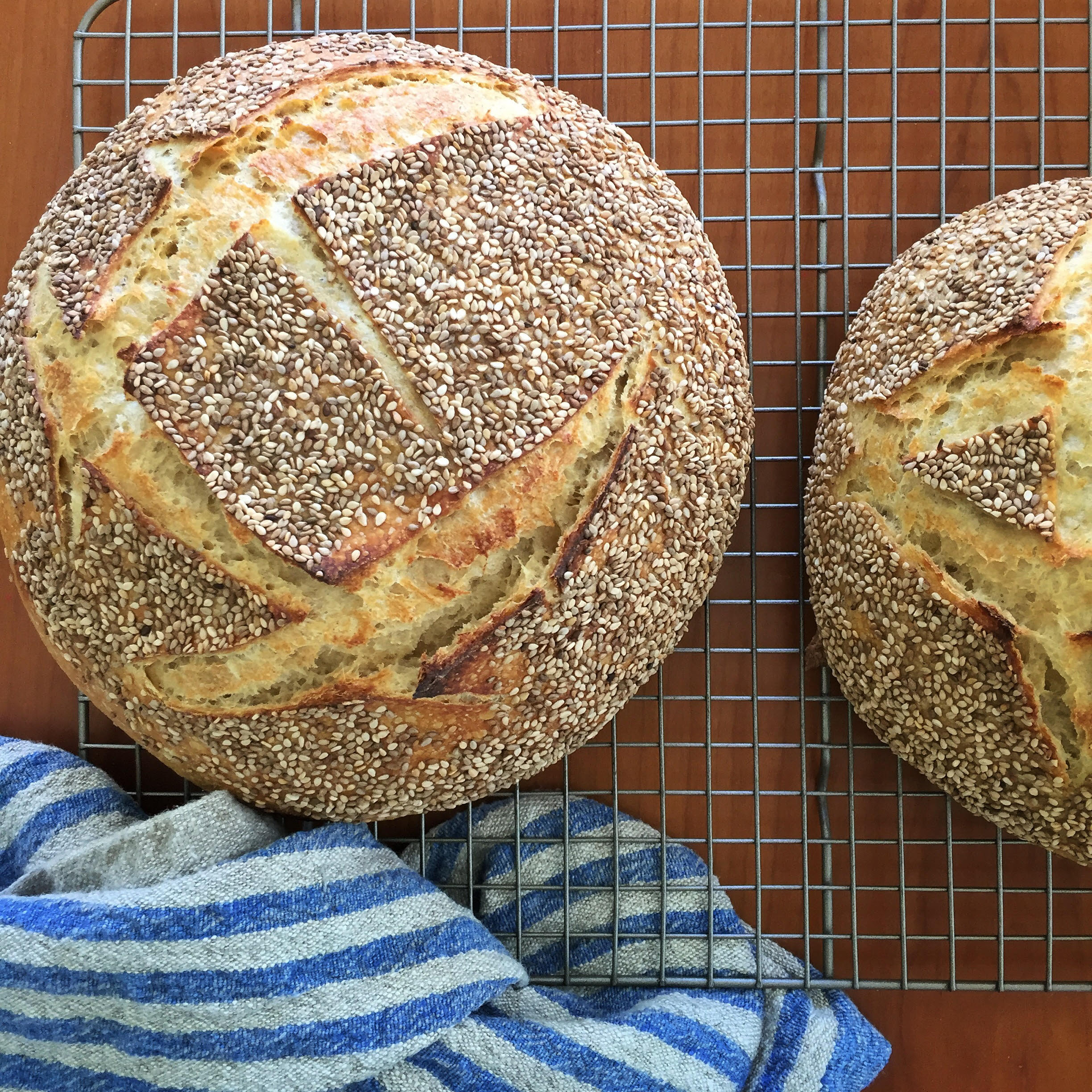 Hale teaches many baking classes through AirBNB’s experiences program. “I love to travel,” she says, “but when I don’t have enough time for travel, it scratches my travel bug to be around people from all over the world.” AirBNB was looking for hosts to populate their experiences program in Portland, OR, where Hale lives. At the time, Hale was teaching at Bob’s Red Mill. They asked if she had any ideas. She did, in fact, and began inviting four people at a time into her home for whole grain bread experiences, start to finish.
Hale teaches many baking classes through AirBNB’s experiences program. “I love to travel,” she says, “but when I don’t have enough time for travel, it scratches my travel bug to be around people from all over the world.” AirBNB was looking for hosts to populate their experiences program in Portland, OR, where Hale lives. At the time, Hale was teaching at Bob’s Red Mill. They asked if she had any ideas. She did, in fact, and began inviting four people at a time into her home for whole grain bread experiences, start to finish.
Hale says she loves teaching. “At a certain point I just decided not to be a baker in a bakery but instead to further my love of whole grain baking by sharing it with others through classes. Teaching them to do it at home. I want baking to be accessible, delicious, and fun for anyone who wants to try.”
Sometimes it seems like walking uphill, Hale says about using a slow fermentation, whole grain process in a culture that often prioritizes speed and ease. “But overall our food system is better than it ever was,” she says. “We have to find ways to get to that.”
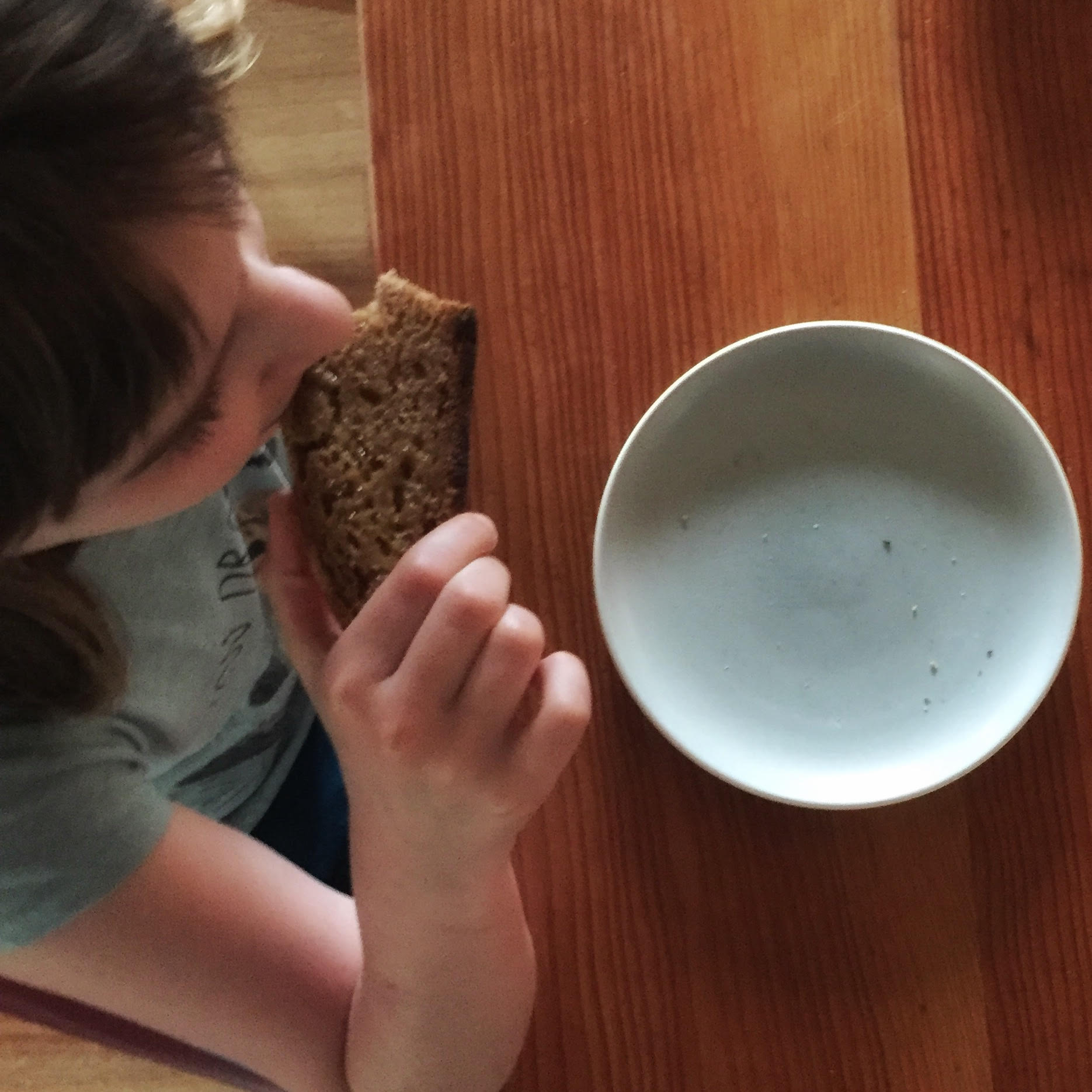 Hale has been in the food industry as a food writer, baker, and teacher for so long that she says she gets to see the evolution of priorities. “I wish Americans were less prone to fads and more prone to just making food from scratch and enjoying it,” she says. “But there are so many people pushing for food systems to be better, all these people putting forth good and interesting ideas about food–I feel really optimistic.”
Hale has been in the food industry as a food writer, baker, and teacher for so long that she says she gets to see the evolution of priorities. “I wish Americans were less prone to fads and more prone to just making food from scratch and enjoying it,” she says. “But there are so many people pushing for food systems to be better, all these people putting forth good and interesting ideas about food–I feel really optimistic.”
One reader refers to “Mama Bread” as “a love letter to whole-grain baking”‘ another calls it “a gem of a book.” Ask your local bookstore to order “Mama Bread” for you, or look HERE for other ways to purchase it.
